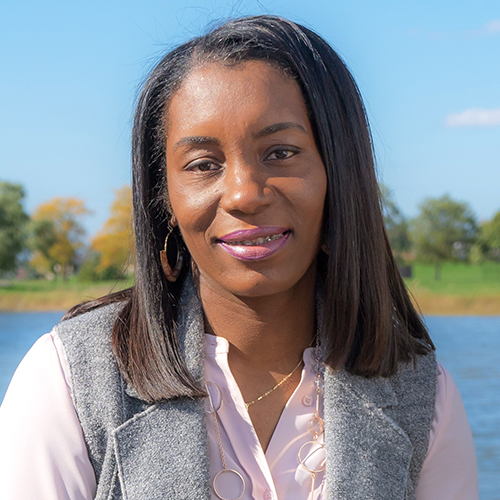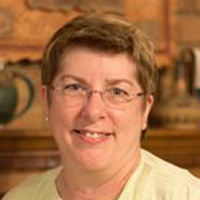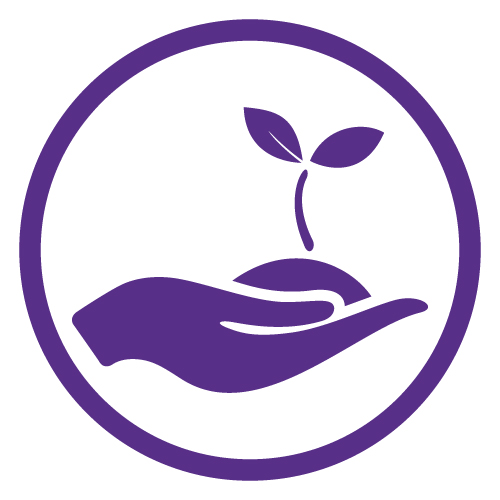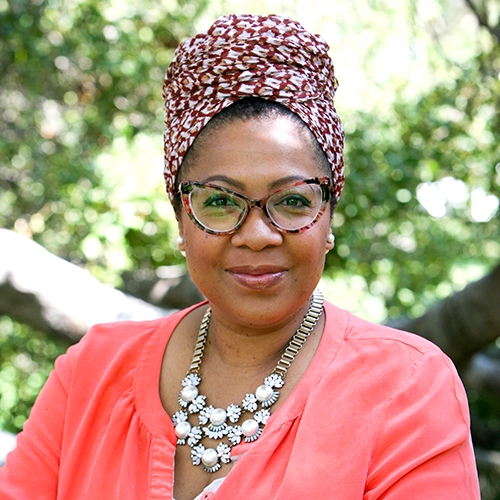 Breastfeeding Support Online Course(s) & Continuing Education
Breastfeeding Support Online Course(s) & Continuing Education
Access the latest clinical skills and research for Breastfeeding Support for Lactation & Breastfeeding professional training. These Breastfeeding Support online courses provide practice-changing skills and valuable perspectives from leading global experts. This Breastfeeding Support education has been accredited for a variety of CEUs / CERPs and can be accessed on-demand, at your own pace.


Diane Wiessinger, MS, IBCLC, is a co-author, with Diana West, Linda Smith, and Teresa Pitman, of La Leche League International’s Sweet Sleep Nighttime and Naptime Strategies for the Breastfeeding Family. She is also a co-author, with Diana West and Teresa Pitman, of the 8th edition of LLLl's Womanly Art of Breastfeeding. Other publications include chapters in Genna's Supporting Sucking Skills in Breastfeeding Infants and Smith's The ABC's of Private Practice, and journal articles and essays on latching, lip ties, D-MER, motherhood in other mammals, and breastfeeding language. Diane self-publishes more than 75 breastfeeding handouts for mothers. She has spoken in over 40 states and provinces and in Europe, Asia, and Oceania.
Topic: The Safe Sleep Seven: Middle Ground for Safe Infant Sleep - [View Abstract]
Babies haven’t changed, but our understanding of how they attach to the breast certainly has. A journey through more than 50 years of “skilled help” with breastfeeding, what we thought we knew, what we think we know, and how we’re circling back to our beginnings and some surprisingly simple conclusions.
View Details / Enroll
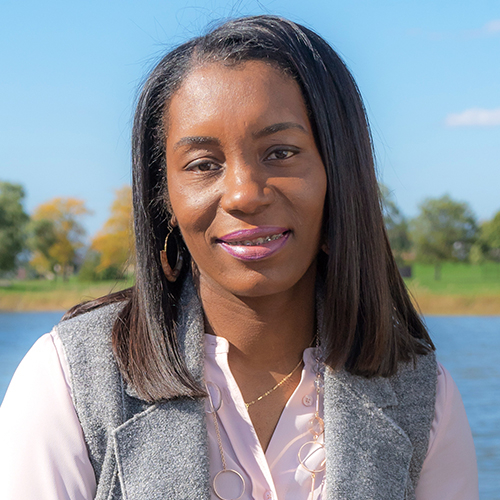

Stacy Davis is the Health Equity and Community Partnerships Manager for the National Women, Infant and Children (WIC) Association. Inspired by her personal and professional experiences, Stacy has focused her efforts on addressing health equities in Maternal Child Health, locally, nationally and internationally, especially as it pertains to black and brown families.
As the former executive director of the National Association of Professional and Peer Lactation Supporters of Color, Stacy established the organization as a brand and leader in the field- addressing racial inequity in lactation support and education, acting as expert panelist and collaborator with other leading organizations, and holding privileged organizations accountable and responsible for the health and wellbeing of communities of color. Additionally, she participated in the growth and expansion of equitable access to Pathway 2 lactation training programs at Historically Black Colleges and Universities, such as Johnson C. Smith and North Carolina A&T Universities. She co-developed and hosted a unique event of its kind- The Amazing R.A.C.E.- a safe space retreat for Maternal Child Health professionals and supporters.
Stacy is a graduate of Western Michigan University where she obtained her master’s degree in Public Health. She has received numerous honors including, but not limited a member of the Center for Social Inclusion’s First Food Racial Equity Cohort, IBCLE’s Spotlight, and the AHEAD in WIC Health Equity Champion. Stacy Davis is a United States Lactation Consultant Association Board of Director.
New parents do not anticipate a challenging journey when it comes breast-/chest-feeding. When things do not go as planned, parents are therefore often consumed by fear and uncertainty and look to professionals for support. Being the person guiding the steps of a new, lactating parent creates a challenge. How do you design a care plan which address the concerns of the parent(s) but also allows the parent(s) to act as a member of the team and the expert on what is best for them and their family in their current life circumstances? How do you foster self-efficacy, and self-empowerment in your clients to ensure that your plan of care is feasible and within the capacity of the parent(s)? Learn more about the importance of meeting parents where they are at to create a care plan which is mutual, feasible, and sustainable. This presentation will be a 60-minute Q&A session so bring your questions about how to approach communication and counselling to create a plan of care that really works for your clients and helps them to meet or exceed their infant feeding goals.


Brandi Gates-Burgess is a Lactation Consultant at Highland Hospital, Community Engagement specialist for the MILK Research Lab, serves on the Community Advisory Board of the UCSF Preterm Birth Initiative, and Co-chairs The Breastfeeding Cultural Outreach Taskforce (BCOT). Recently, Brandi transitioned from her 16-year career providing lactation support to families of the California WIC Program and decided to live her dream. She started her non-profit organization Breast Friends Lactation Support Services where she provides group lactation education and support to Black Families in the Bay Area. She is a mother to 4 breastfed children, wife and world traveler.
Topic: The Power of Mentorship - [View Abstract]
Most families plan to breastfeed during their pregnancy and are successful for the first month but fail to continue breastfeeding once they have returned to work. Although there is substantial evidence on factors that influence exclusive breastfeeding in the early postpartum period, there is a general lack of information to help mothers and lactating people continue to breastfeed after returning to work. When there is financial pressure combined with a lack of long-term, paid leave, many lactating parents must return to work shortly after the birth of their infant. When the workplace does not provide support, maternal employment becomes one of the major barriers to continued breastfeeding. There are many factors that play a role in the discontinuation of breastfeeding after returning to work, ranging from lack of support from the employer to the physical ability to express enough milk needed to satisfy baby. During this presentation we will address the lack of information and provide solutions to increase breastfeeding rates and duration after returning to work.


I am a wife and mother of two breastfed children. I was a general practitioner and am currently more focused on helping mothers to breastfeed. I work at Puri Cinere Hospital and Kemang Medical Care Women and Children as a lactation counselor. I currently on leave due to accompany my husband school in United State for his PhD programs. Since 2009, I've been helping mothers who have difficulties breastfeeding. It is a delight when we meet during tough times, then met again once their breastfed child are big and smart, and most importantly successfully breastfed. My desire is to help mothers to breastfed wherever I live in this world.
Good doctor–patient communication is essential for positive health care outcomes. Ideal doctor–patient communication generally is reflected in a partnership communication style. However, in Southeast Asian settings, we often see a more one-way style with little input from the patient.
Helpline services is breaking the ice, and is considered a new option modality for patients in Indonesia. The ease in contacting medical professionals through phone and text messages seems more comfortable, personal and inexpensive.
Breastfeeding support via a helpline helps mother to feel reassured, confident and more determined to continue breastfeeding, and in majority of occasions resolves their particular concerns.
Lactation Clinic in Puri Cinere Hospital, Depok, West Java, Indonesia was established in August 2011 and operated a helpline since the beginning of its establishment. Helpline service is open 24 hours daily, through phone, text messages, whatsapp, or blackberry messenger directly to doctors who are also breastfeeding counselors. There are six doctors who take turns every month to receive calls and reply to messages. Helpline numbers are distributed to patients during post natal rounds or at patients doctors appointments in lactation clinic.
A longitudinal study conducted in March to December 2014 shows 202 helpline cases in 9 months. There were 29 cases (14%) questioning EBM handling, 24 cases (12%) asking about complementary feeding, 19 cases (9%) of infant stool, 19 cases (9%) medication and mother's milk, 15 cases (7%) frenotomy after care and other various problems. 63% cases were successful managed via helpline, and 37% cases were referred to the Lactation Clinic to get further help.
There were many cases resolved through helpline calls and messages. High success rate of helpline management shows that helpline program is effective to help mothers and resolved their particular concerns; especially in Indonesia.

View Details / Enroll
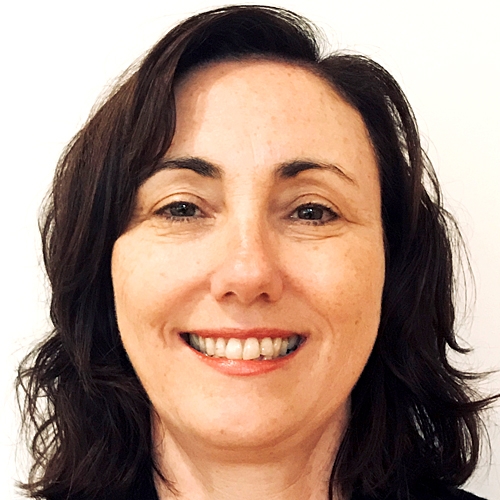
Liquid Gold from the Milk Bar: Health Professional Language and Practices When Providing Breastfeeding Support

Dr Elaine Burns is a Registered Midwife and Senior Lecturer at Western Sydney University and Chair of the NSW Branch of the Australian College of Midwives. Elaine has worked in the area of midwifery and women’s health for more than two decades and has an established track record as clinician, educator and researcher. Her current research interests focus around midwifery practice during the early postnatal period and peer and professional breastfeeding communication. Elaine is passionate about improving support for women who are breastfeeding and the early transition to mothering.
The language and practices of health professionals can impact upon how a woman feels about breastfeeding and her breastfeeding baby. This presentation will report on the observed, and audio recorded, language used by health professionals during the early establishment phase of breastfeeding. Much of the language positioned breastfeeding as the mechanical production of nutritious fluid rather than a relational interaction between mother and baby. At times the infant was positioned as an antagonistic being with the capacity to ‘think and decide’ whether to cooperate with breastfeeding. An alternative discourse emerged from a more relationship-focused approach to breastfeeding support. This presentation will report on projects which have included the observation of interactions between breastfeeding women and midwives, and/or lactation consultants and/or trained breastfeeding peer supporters. Exemplars of best practice for health professionals, and peer supporters, who provide breastfeeding support during the early establishment of breastfeeding, will be provided.

View Details / Enroll
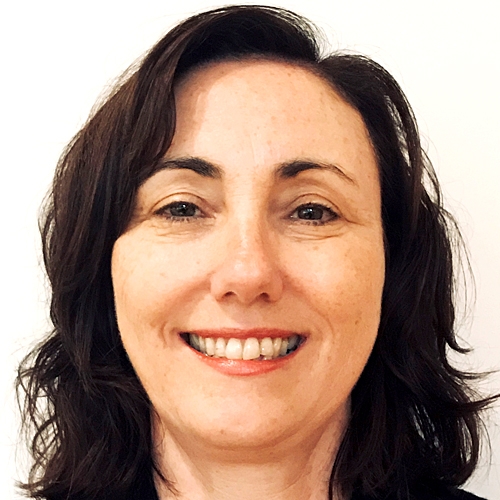
View Details / Enroll


Cathy Carothers is co-director of Every Mother, a non-profit organization providing lactation training for health professionals. An International Board Certified Lactation Consultant since 1996, she has provided more than 600 training events and conference presentations in every U.S. state/territory and several countries. She is past president of the International Lactation Consultant Association (ILCA), a fellow of ILCA, and past chair of the U.S. Breastfeeding Committee. She chairs the design team for the equity initiative in the lactation consultant profession, and chairs the Monetary Investment for Lactation Consultant Certification (MILCC), which works to reduce financial barriers to the IBCLC exam. She has directed several national breastfeeding promotion and support initiatives for the U.S. federal government, including the national USDA WIC peer counseling program, and national workplace support initiatives through the U.S. Department of Health and Human Services. She was honored with the 2014 National Leadership Award from the National WIC Association.
Topic: Dealing With the Tough Ones: Counseling in Difficult Situations - [View Abstract]
Topic: Making it Work: Supporting Nursing Moms at Work - [View Abstract]
There has to be an easier way! Many women returning to work after the birth of a baby find that the challenges are great…especially if they are breastfeeding, and the challenges range from lack of time and space to emotional and physical demands. The challenges are even greater for low-wage workers employed in more challenging, non-office settings, where private space options are much more difficult to identify, and where women often feel devalued and lack of confidence to speak up about their needs. For many women, discontinuing breastfeeding seems like the easiest “solution,” impacting maternal and infant health. This session will address the key issues of women returning to work, with workable solutions for supporting women with time and space for milk expression at work, and resources that can help.
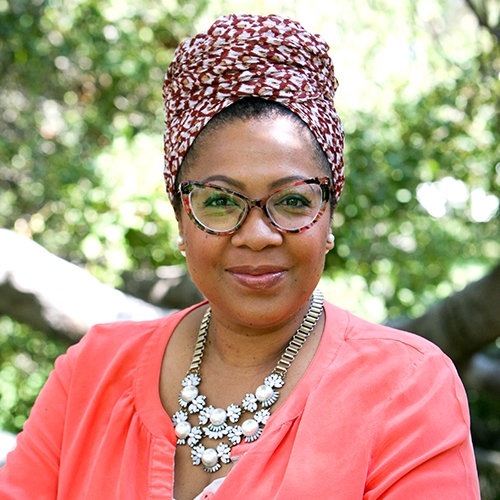

Nekisha Killings is an equity strategist, internationally board-certified lactation consultant, and maternal and child health advocate who speaks, teaches, and facilitates on topics related to equity and dismantling bias across various sectors.
When she is not home educating 4 future world changers, she acts as a Director of Equity, Inclusion and Belonging at Lactation Education Resources and consults organizations on creating and implementing strategies to better support marginalized communities.
Nekisha holds a Masters in Public Health and penned the chapter titled Cultural Humility in the latest Core Curriculum for Interdisciplinary Lactation Support text. Nekisha is on a mission to normalize brown breasts and nipples in health education, thereby better equipping healthcare providers to accurately assess and treat people of color.
Nekisha's work is rooted in a compassion and candor that could only have been cultivated in years of supporting new parents during their first days of parenthood. Nekisha is an active duty military spouse who has been awarded the Spouse of the Year designation for her volunteer efforts supporting families.
Topic: Breast Assessment and Non-White Skin Tones - [View Abstract]
Topic: BreastSide Manner: A Patient-Centered Approach to Lactation Support - [View Abstract]
Topic: Marching Orders: Developing Practical and Impactful Care Plans - [View Abstract]
What good is a successful patient consult if the follow-up instructions are not thorough or are too complicated to follow? In this talk, we’ll review best practices in Care Plans, and explore innovative approaches to developing plans. The goal is to increase patient compliance and the right Care Plan can be a powerful tool towards full compliance. We will discuss pitfalls of traditional plans, dos and don'ts in writing plans, and crafting plans that are culturally sensitive and realistic. We’ll also explore using to technology to create adaptable and adjustable plans.
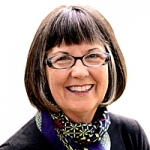
Maternal & Infant Assessment for Breastfeeding: Essential Concepts for Midwives

Barbara Wilson-Clay became a La Leche League Leader in 1982. She certified as an IBCLC and entered private practice in Austin, Texas in 1987. Barbara was named a Fellow of the International Lactation Consultant Association in 2008. She recently retired from her practice, which specialized in difficult breastfeeding situations. With a client load of 400-450 visits yearly, Barbara garnered a wealth of clinical and counseling experience and a trove of clinical teaching photos. In partnership with Kay Hoover, she created The Breastfeeding Atlas, which was translated into Chinese in 2019 by Fudan University Press. A Korean translation will be published in September 2020.
Barbara has been a citizen advocate for breastfeeding in the Texas legislature and helped pass a landmark law protecting breastfeeding rights. She is one of the co-founders of the non-profit Mothers Milk Bank at Austin, and retired as Vice President of the Board of Directors in 2010. She continues to serve on the Advisory Board. Barbara's research and commentaries have appeared in the Journal of Human Lactation, Archives of Disease in Childhood, the International Breastfeeding Journal, and others. She has served on various editorial review boards and contributed chapters to several lactation textbooks.
Topic: Looking Both Ways: Taking Wisdom from the Past Into the Future - [View Abstract]
Topic: Looking Closely at The Baby - [View Abstract]
Topic: Maternal & Infant Assessment for Breastfeeding: Essential Concepts for Midwives - [View Abstract]
Infants born at term following an uneventful birth generally require no breastfeeding interventions aside from a supportive environment. However, even in populations of women who are well-motivated to breastfeed, fully one third of infants demonstrate sub-optimal breastfeeding behavior in the first week postpartum. Risk factors have been identified that predict which mother-infant pairs may require extra assistance to protect the option to fully breastfeed once conditions stabilize. Careful assessment of the dyad helps identify who will need the most help. Such assessment is necessary to protect the infant from excessive weight loss and, because the calibration of milk supply is a time-sensitive event, serves to protect the potential for a full milk supply. Midwives must be familiar with new research that recommends that, in the presence of risk factors, milk expression should begin in the first hour after birth, with expressed colostrum being delivered to the infant by spoon or cup.
View Details / Enroll
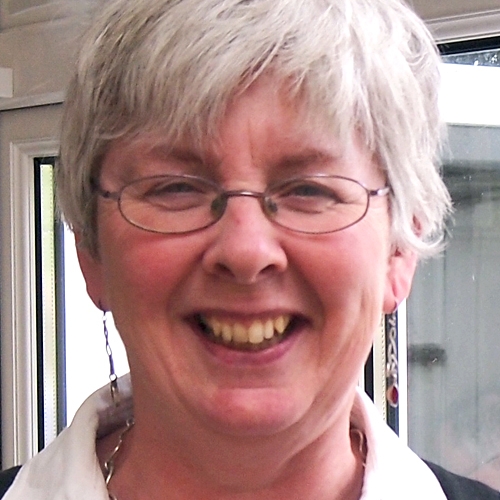
Mothering Experiences: The Development of Self-Efficacy in First Time Mothers

Eithne Murray developed a passion for breastfeeding as a result of her own experience as a mother – a passion she did not know she had. She initially trained as a breastfeeding counsellor with NCT in the UK and, upon moving back to Ireland, trained as a breastfeeding counsellor with Cuidiú-the Irish Childbirth Trust, later becoming a tutor. She qualified as an IBCLC in 2009, and worked privately for a while. She now works predominantly in education. This presentation was based on the research undertaken for a dissertation on transition to motherhood as part of her studies for a Masters degree.
Aims: The aims of this study were to explore the role of education and support in the development of self-efficacy in first-time mothers during the transition to motherhood.
Methodology: Using a qualitative approach, first time mothers, whose babies were less than 15 months old, were recruited from among women who had attended various models of antenatal classes They took part in a semi-structured interview on their experiences and personal constructs relating to the perceived quality of support they received were then elicited.
Findings: Becoming a mother was a process that held great meaning for all the mothers. For the women interviewed, breastfeeding was both a practice and a process which held meaning for these women. The impact of the various forms of antenatal classes in developing self-efficacy for all parental tasks is explored. The elicitation of personal constructs provides a novel format for women to evaluate the quality of the support they received – a topic which has been seldom researched.

View Details / Enroll
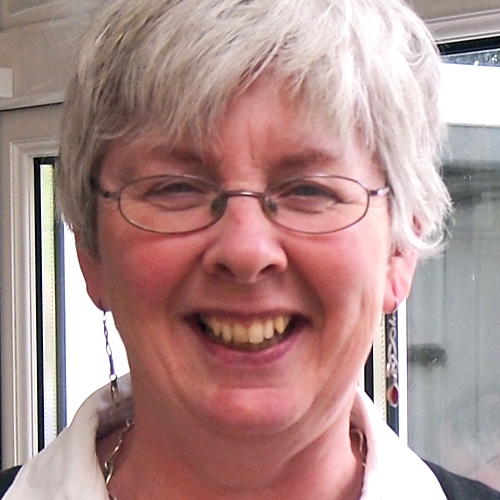
View Details / Enroll

Nursing A Preemie, Perspectives For Lactation Supporters and Professionals

Paulina is the mother of three multicultural Latino children and Project Director for Lifespan Local. Paulina earned her BS in Psychology from the Pennsylvania State University, a MS in Organizational leadership from the University of Denver and is completing her PhD in Health and Behavioral Sciences at the University of Colorado - Denver. Paulina has over 18 years of experience working with families with young children. As a Maternal Child Health specialist for Jefferson County Public Health, she developed a NICU follow-up home visitation program and the pediatric emergency preparedness plan, co-founded and coordinated the Conectando Network (former Adelante Jeffco), established community navigation and lactation support groups focused on the Latino Spanish speaking community, and lead other initiatives to support leadership and partnerships among communities and organizations. During the COVID-19 pandemic, she managed the new program Whole Community Inclusion to ensure the pandemic response and recovery implementation included health equity practices that recognize the needs and the strengths of priority populations in the county. Her areas of current work include promoting perinatal and infant mental health along the continuum of care; building community capacity to navigate health and education systems; facilitating organizational change to embrace linguistic and culturally responsive practices; and establishing community-placed participatory programs to strengthen communities. She likes to be with people, learn from and with others, and connect passions for meaningful work.
Topic: From the NICU to the home: mother’s experiences - [View Abstract]
Topic: Leadership Skills in Lactation: Make Extraordinary Things Happen - [View Abstract]
Topic: Liderazgo en Lactancia - Para Alcanzar Metas Extraordinarias - [View Abstract]
Topic: Nursing A Preemie, Perspectives For Lactation Supporters and Professionals - [View Abstract]
In this presentation participants will learn about parents’ experiences with feedings in the NICU and continuation of lactation after going home, the importance of parent-child mutual-regulation and its implication in feeding success, strategies for lactation professionals to support the nursing relationship, and infant mental health concepts in relationship to feeding.
This presentation will include qualitative and quantitative data to broaden participants understanding of the context of lactation with a premature baby or a baby with special medical conditions. The participants will also receive information about multidisciplinary approaches and initiatives to support families with preemie babies.

View Details / Enroll
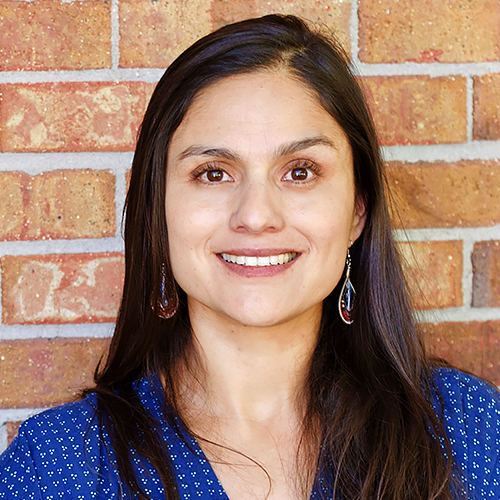
View Details / Enroll



